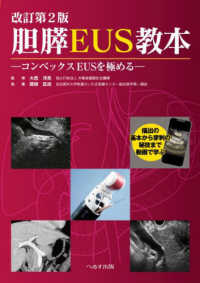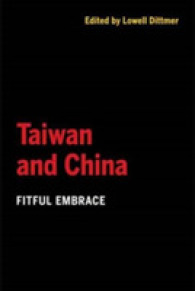Full Description
In civil conflicts around the world, unarmed civilians take enormous risks to protect themselves and confront heavily armed combatants. This is not just counterintuitive - it is extraordinary. In this book, Oliver Kaplan explores cases from Colombia, with extensions to Afghanistan, Pakistan, Syria, and the Philippines, to show how and why civilians influence armed actors and limit violence. Based on fieldwork and statistical analysis, the book explains how local social organization and cohesion enable both covert and overt nonviolent strategies, including avoidance, cultures of peace, dispute resolution, deception, protest, and negotiation. These 'autonomy' strategies help civilians retain their agency and avoid becoming helpless victims by limiting the inroads of armed groups.
Contents
1. Introduction: civilian autonomy in civil war; 2. A theory of civilian decision-making in civil war; 3. The history of conflict and local autonomy in Colombia; 4. Living to tell about it: research in conflict settings; 5. How civilian organizations affect civil war violence; 6. Why some communities are more organized than others; 7. The institution of the ATCC: protection through conciliation; 8. Discovering civilian autonomy in Cundinamarca; 9. Civilian autonomy around the world; 10. Conclusions and policy implications.








